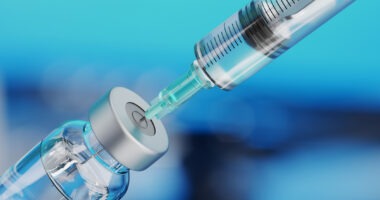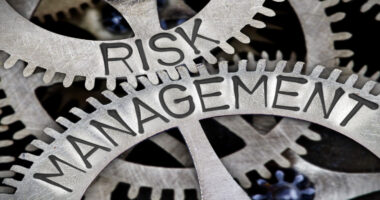The Implications of Teva’s $40 Billion Proposal for Mylan
Teva Pharmaceutical Industries Ltd. has announced a proposal to acquire all of the outstanding shares of Mylan N.V. in a transaction valued at approximately $40 billion. The move would create a top 10 pharma company with combined 2014 pro forma sales of approximately $30 billion. The non-binding proposal by Teva follows Mylan’s proposal earlier this month to acquire Perrigo for nearly $29 billion. DCAT Value Chain Insights (VCI) examines the implications of a combined Teva and Mylan.
The specialty and generics pharmaceutical market is in a period of change, with a second major deal announced this month, Teva’s non-binding proposal to acquire Mylan for approximately $40 billion. If Teva proceeds with a formal offer, it would require Mylan to drop its pursuit of Perrigo for which Mylan had made its own non-binding proposal to acquire earlier this month. This deal-making follows Actavis’ $70-billion acquisition of Allergan earlier this year, positioning Actavis among the top-ranking global pharmaceutical companies. So what does the deal mean for Teva and what would a combined Teva and Mylan be?
A look at the deal
Teva Pharmaceutical Industries Ltd. made a non-binding proposal to acquire all of the outstanding shares of Mylan N.V. in a transaction valued at $82.00 per Mylan share, in a stock-and-cash deal valued at approximately $40 billion that would create a combined company with 2014 pro forma sales of approximately $30 billion. The non-binding proposal by Teva follows Mylan’s proposal earlier this month to acquire Perrigo for $28.9 billion, a proposal that Perrigo formally rejected on April 21, 2015. Teva’s proposal to acquire Mylan is conditioned on Mylan not acquiring Perrigo or pursuing another transaction.
“Our proposal is compelling for both Teva and Mylan stockholders and other stakeholders,” said Erez Vigodman, president and chief executive officer of Teva, in a company statement.”Our proposal would provide Teva stockholders with very attractive strategic and financial benefits and Mylan stockholders with a substantial premium and immediate value for their shares, as well as the opportunity to participate in the significant upside potential of the combined company, one that would transform the global generics space and leverage it to hold a unique leadership position in the pharmaceutical industry. We have long respected Mylan’s business, and we are confident that Mylan’s board of directors and stockholders will agree that our proposal represents a significantly more attractive alternative for Mylan and its stockholders than Mylan’s proposed acquisition of Perrigo.”
Teva’s proposal would provide Mylan stockholders with consideration representing a 37.7% premium to the stock price of Mylan on April 7, 2015, which is the last day of trading prior to Mylan’s press release regarding its unsolicited proposal for Perrigo, and a 48.3% premium to the unaffected stock price of Mylan on March 10, 2015, which is the last day of trading prior to widespread speculation of a transaction between Teva and Mylan, according to information from Teva.
The non-binding proposal by Teva to acquire Mylan is conditioned on Mylan not pursuing its acquisition of Perrigo or alternative transaction.In a letter to Mylan Executive Chairman Robert Coury, Teva’s Vigodman said: “We were disappointed that you prematurely addressed a potential combination in your press release issued on April 17, 2015 [the date in which Mylan announced a proposal to acquire Perrigo]. We would welcome the opportunity to meet with you to address your points and to elaborate on the rationale of our proposed combination, its appealing economics, and the benefits it provides for our respective stakeholders,” Vigodman further said in his letter. “We are prepared to begin working with you immediately and to commit the resources and time required to complete the transaction expeditiously.” Teva’s board of directors has approved the proposal, and a deal to acquire Mylan would not require Teva shareholder approval or a financing condition.
A combined Teva and Mylan would create a leading specialty and generic drug company with combined pro forma 2014 revenues of approximately $30 billion. The companies’ combined specialty pharmaceutical business would be approximately $10 billion with a therapeutic focus in multiple sclerosis (MS), respiratory, pain, migraine, movement disorders, and allergy therapeutics. The deal, if completed, would come as Teva faces generic competition for its top-selling drug, Copaxone (glatiramer acetate), a drug to treat MS, which had 2014 revenues of $4.3 billion. The US Orange Book patents covering Copaxone (20 mg) expired in May 2014. To combat generic-drug incursion for Copaxone, Teva developed a new formulation, Copaxone 40 mg/mL, which is administered three times a week. The new formulation, which was approved by the US Food and Drug Administration (FDA) in January 2014, allows for a less frequent dosing regimen administered subcutaneously for patients with relapsing forms of MS. Earlier this month, Sandoz, the generics business of Novartis, became the first company to receive FDA approval for a generic glatiramer acetate in a 20-mg/1-mL daily injection.
On the generics side, a combined company Teva and Mylan would have a combined pipeline of more than 400 pending abbreviated new drug applications and more than 80 first-to-files in the US, according to information from Teva. Teva noted that the acquisition of Mylan would provide Teva with capabilities and technologies to focus on more complex, hard-to-produce durable products. With the acquisition, Teva would gain Mylan’s ophthalmic products, soft gel caps, topical and inhalant technologies, “Wave 2” biosimilars, injectables and alternative dosage forms, and antiretroviral products.
Teva anticipates that a combined company could achieve cost synergies and tax savings of approximately $2 billion annually. The cost saving are expected to be largely achieved by the third year following the closing of the transaction. Teva expects the savings to come from operational, selling, general, and administrative (SG&A) expenses, manufacturing, and R&D efficiencies as well as tax savings. Mylan is now headquartered in Amsterdam, the Netherland, following Mylan’s recently closed acquisition under which it acquired Abbott’s non-U.S. developed markets specialty and branded generics businesses. With that deal, Mylan N.V became the new company with corporate headquarters in Amsterdam and principal executive offices in Potters Bar, United Kingdom with global centers of excellence in the US, Europe, and India.
A Teva offer to acquire Mylan would be subject to customary conditions. Teva said that it has “carefully studied the regulatory aspects of a combination of Teva and Mylan, in conjunction with its advisors. Teva is confident that it would be able to structure a transaction that would not contain material impediments to closing and that it can determine and promptly implement divestitures, as necessary, to gain regulatory clearances” said the company in its statement. Teva expects that the proposed transaction, if it proceeds, can be completed by year-end 2015, but there is no assurance that a transaction between Teva and Mylan will be consummated.
Mylan issued a statement on April 17, 2015 amid media speculation that Teva would make a proposal to acquire Mylan. Mylan Executive Chairman Robert J. Coury commented: “Mylan is fully committed to its stand-alone strategy, including its proposal to acquire Perrigo, and today’s speculation has no impact whatsoever on this strategy. We have studied the potential combination of Mylan and Teva for some time, and we believe it is clear that such a combination is without sound industrial logic or cultural fit. Further, there would be significant overlap in the companies’ businesses, and we believe that it is unlikely that any such combination could obtain antitrust regulatory clearances. Of course, should any party make an actual offer to acquire Mylan, the Board would carefully consider it in exercising its fiduciary duties in the best interests of the company, our stockholders, and other stakeholders.”
Mylan’s product positions
So what would Teva gain with an acquisition of Mylan? In 2014, Mylan posted revenues of $7.72 billion, up 12% year over year. Currently, Mylan markets a global portfolio of approximately 1,400 different products covering multiple therapeutic categories in a range of dosage forms and delivery systems, including oral solids, topicals, liquids and semi-solids, according to the company’s 2014 annual filing. The company typically focuses on those products that are difficult to formulate and manufacture and that have longer life cycles than traditional generic pharmaceuticals, including transdermal patches, high-potency formulations, injectables, controlled-release and respiratory products. In addition, the company provides antiviral therapies. It also manufacturers active pharmaceutical ingredients (APIs) for its own products as well as provide third-party API manufacturing services.
Mylan operates in two main segments, generics and specialty, with its revenues derived primarily from the sale of generic and branded generic pharmaceuticals, specialty pharmaceuticals, and APIs. In 2014, its generics business accounted for $6.46 billion and its specialty products for $1.19 billion in revenues. Its generic pharmaceutical business is conducted primarily in the US, Canada, Europe, India, Australia, Japan, New Zealand, and Brazil as well as through export activity into emerging markets (i.e, rest of world (ROW)). Its API business is conducted through Mylan India, which is included within the ROW in its generics segment. Its specialty pharmaceutical business is conducted by Mylan Specialty L.P.
Mylan recently added to its specialty and generics portfolio with its recently closed acquisition of Abbott’s non-U.S. developed markets specialty and branded generics businesses.With the Abbott acquisition, Mylan gained more than 100 specialty and branded generic pharmaceutical products in five major therapeutic areas, which included several patent protected, novel and/or hard-to-manufacture products, according to Mylan’s 2014 annual filing. The company also expanded and strengthened its product portfolio in Europe, Japan, Canada, Australia, and New Zealand. As a result of the transaction, Mylan shareholders own approximately 78% of Mylan N.V. and Abbott’s affiliates own approximately 22%. In April 2015, Abbott announced that it is selling approximately one-third of its stake in Mylan. In addition to the Abbott acquisition, other recent acquisitions by Mylan include Agila Specialties, Merck KGaA’s generics and specialty pharmaceutical business, Bioniche Pharma, Pfizer’s respiratory delivery platform, and Matrix Laboratories in 2007 (which was later renamed Mylan India).
Generics, particularly the US generics market, is an important market for Mylan. The company estimates that one in every 13 prescriptions dispensed in the US is a Mylan products. Its sales in the US are primarily from the sale of oral solid dosage, injectable and transdermal products, and unit dose offerings. In the US, its generic portfolio (as of year-end 2014) consisted of approximately 360 products, of which approximately 270 are in capsule or tablet form, in an aggregate of approximately 815 dosage strengths. Included in these totals are approximately 45 extended-release products in a total of approximately 105 dosage strengths. The company also manufactures and sells injectable products across several key therapeutic areas, including antineoplastics, anti-infectives, anesthesia/pain management, and cardiovascular. As of year-end 2014, it had 125 injectable products (branded and generic) in a total of approximately 175 dosage strengths. As of December 31, 2014, Mylan had approximately 120 injectable products that had been filed and are pending ANDA approval for the US market. Mylan’s injectable manufacturing capabilities include vials, pre-filled syringes, ampoules, and lyophilization with a focus on antineoplastics, penems, penicillins, ophthalmics, and peptides. In Canada, the company has approximately 170 products in an aggregate of approximately 375 dosage forms. The company’s unit dose business focuses on products with innovative packaging and barcoding that supports bedside verification throughout the US and Canada for hospitals, group purchasing organizations, long-term care facilities, wholesalers, surgical services, home-infusion service providers, correctional facilities, specialty pharmacies, and retail outlets. In addition to the products it packages in the US, it also markets approximately 60 generic products in a total of approximately 80 dosage strengths under supply and distribution agreements with wholesalers. Also included in its US product portfolio are five transdermal patch products in a total of 25 dosage strengths, including a fentanyl transdermal system, a narcotic transdermal product.
In Europe,Mylan operates in 22 countries. In Japan, beginning in 2013, Mylan established an exclusive long-term strategic collaboration with Pfizer Japan to develop, manufacture, distribute, and market generic drugs in Japan. Under the agreement, both parties operate separate legal entities in Japan and collaborate on current and future generic products, sharing the costs and profits resulting from such collaboration. Mylan’s responsibilities in Japan primarily consist of managing operations, including R&D and manufacturing. Pfizer Japan’s responsibilities primarily consist of the commercialization of the combined generics portfolio and managing a combined marketing and sales effort. In Japan, together with Pfizer Japan, the company offers a broad portfolio of more than 290 products in an aggregate of approximately 450 dosage strengths. It also has a manufacturing and packaging facility located in Japan, which is key to supplying its collaboration with Pfizer in Japan.
In some key emerging markets, Mylan began commercial operations in Brazil in the fourth quarter of 2013 through its acquisition of Agila. In Brazil, Mylan operates both a manufacturing platform and a commercial business focused on providing generic injectable products to the Brazilian hospital segment with a goal of further enlarging its participation in the Brazilian market.
Mylan’s specialty pharmaceutical business is conducted through Mylan Specialty, which competes primarily in the respiratory and severe allergy markets. Mylan Specialty’s portfolio consists primarily of branded specialty injectable and nebulized products. A significant portion of Mylan Specialty’s revenues are derived through the sale of the EpiPen Auto-Injector, which during 2014, became the first Mylan product to reach $1 billion in annual net sales. The EpiPen Auto-Injector, which is used in the treatment of severe allergic reactions, is an epinephrine auto-injector that has been sold in the US and internationally since the mid-1980s. Mylan Specialty has worldwide rights to the epinephrine auto-injector, which is supplied to Mylan Specialty by a wholly owned subsidiary of Pfizer.
Another key product in its specialty segment is Perforomist Inhalation Solution, Mylan Specialty’s formoterol fumarate inhalation solution, was launched in October 2007. It is a long-acting beta2-adrenergic agonist indicated for long-term, twice-daily administration in the maintenance treatment of bronchoconstriction in chronic obstructive pulmonary disorder, including those with chronic bronchitis and emphysema. In addition to EpiPenAuto-Injector and Perforomist inhalation solution, Mylan Specialty also markets Ultiva, which is an analgesic agent used during the induction and maintenance of general anesthesia for inpatient and outpatient procedures and is generally administered by an infusion device.
Mylan’s manufacturing and R&D operations
On a manufacturing basis as of year-end 2014, Mylan had six production, distribution, and warehousing facilities in the US and Puerto Rico, including significant production and distribution sites in Morgantown, West Virginia; St. Albans, Vermont; Caguas, Puerto Rico; and Greensboro, North Carolina. Outside the US and Puerto Rico, the company owns production, distribution, and warehousing facilities in nine countries, including key facilities in India, Australia, Japan, Ireland, Brazil, Hungary, Poland, and France. As a result of its recent deal with Abbott, the company gained two manufacturing facilities in Chatillon, France and Katsuyama, Japan. Mylan India (which includes company’s contract manufacturing activities) has nine API and intermediate manufacturing facilities, four finished dose form (FDF) facilities, and eight injectable facilities in India of which eight of the API facilities, two FDF facilities, and four injectable facilities have been successfully inspected by the US Food and Drug Administration, according to the company’s annual filing.
Mylan also leases warehousing, distribution, and administrative facilities in numerous locations, within and outside of the US, including properties in New York, France, India, Ireland, and the United Kingdom. All of the production, distribution and warehousing facilities are included within the company’s generics segment; however, certain locations also support its specialty segment. On a R&D basis, its global R&D centers of excellence are located in Morgantown, West Virginia and Hyderabad, India. It also has specific R&D technology centers of excellence in Ireland, India, the UK, and Japan. As a result of the recent deal with Abbott, Mylan is corporately headquartered in in Amsterdam, the Netherlands, and its principal executive offices are located in Potters Bar, UK with the global centers of excellence in the US, Europe, and India.




